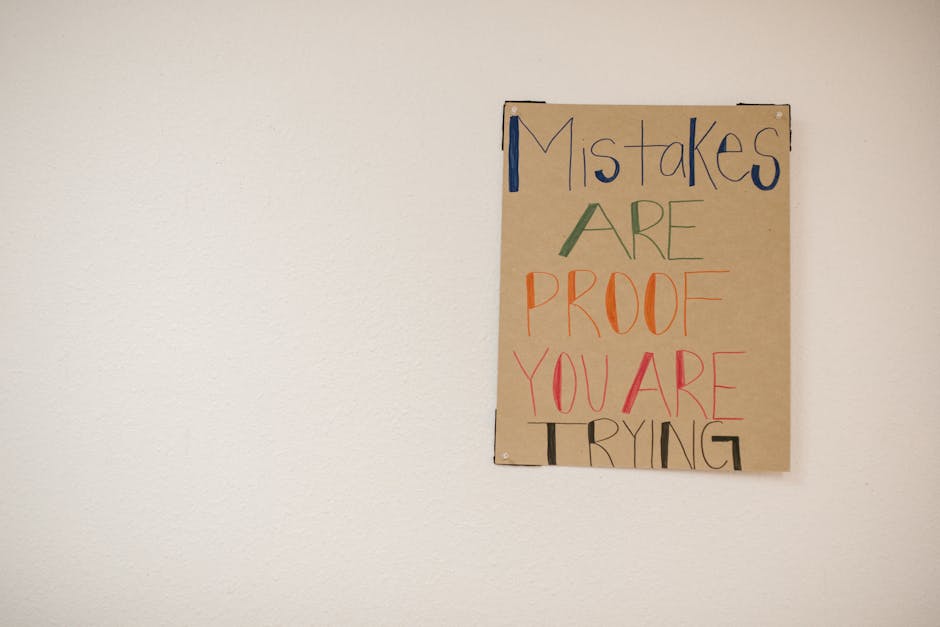You check your phone before breakfast, skip planning your day, and wonder why you’re always tired and broke. These aren’t character flaws—they’re fixable errors most of us repeat without realizing the impact.
Most people unknowingly repeat small mistakes that quietly drain bank accounts, mental energy, and peace of mind. The good news? Simple system tweaks can transform your energy, finances, and decision-making without a complete lifestyle overhaul.
The Hidden Cost of Daily Mistakes
Seemingly harmless daily errors create cascading effects that drain your time, money, and mental energy far beyond their immediate impact.
The average person makes 35,000 decisions daily. Research shows decision quality drops dramatically after just a few hours of accumulated choices. This explains why evenings feel harder than mornings—you’ve burned through your best cognitive fuel making countless small decisions.
Small financial leaks add up fast. Unused subscriptions, impulse purchases, and convenience fees cost households between $500 and $1,200 annually. Studies reveal 42% of subscription spending goes to forgotten or rarely-used services. That streaming platform you signed up for during a free trial? It’s been charging you for eight months.
Reactive morning routines create another hidden cost. When you wake up scrambling, your body releases stress hormones that persist for hours, reducing productivity and increasing irritability. Cortisol levels from morning chaos can stay elevated for 4-6 hours, sabotaging your entire day before you’ve started working.
The pattern becomes clear: daily errors compound exponentially, costing you money, energy, and decision-making power.
Decision Fatigue: Your Silent Productivity Killer
Every choice depletes mental energy, making later decisions progressively worse.
This phenomenon, called decision fatigue, explains why you eat healthy at breakfast but order takeout by dinner—willpower is a finite resource that gets depleted.
The research is striking. Studies show judges grant parole 65% more often early in the day versus late afternoon. If trained professionals make worse decisions when mentally tired, imagine what’s happening to your daily choices.
The solution isn’t developing more willpower—it’s making fewer decisions. Successful people automate clothing choices, meals, and routines to preserve mental energy for important decisions. Steve Jobs and Mark Zuckerberg famously wore identical outfits to eliminate morning decisions. You don’t need a uniform, but strategic simplification makes a real difference.
Create ‘decision rules’ for recurring situations. Set spending limits for different categories, create meal templates for weeknights, or establish automatic responses for common requests. People using preset spending rules reduce impulse purchases by 40%, freeing up both money and mental bandwidth.
The key insight? Automate small decisions to preserve mental energy for choices that actually matter. Your brain has limited processing power—spend it wisely on decisions that align with your priorities.
Morning Routine Optimization That Actually Works
The first 60 minutes of your day set the tone for everything that follows.
When you check your phone immediately upon waking, you hand control of your attention to external demands before setting your own intentions.
Emails, news alerts, and social media notifications hijack your morning before you’ve decided what matters today. This reactive start creates a pattern that’s hard to break.
Instead, create a ‘phone-free first hour’ buffer. Use that time to move your body, eat mindfully, or simply think without digital interference. This single change can dramatically shift how the rest of your day unfolds.
Here’s a game-changer: prepare tomorrow’s essentials tonight. Lay out clothes, prep breakfast ingredients, and pack your bag before bed. Evening prep reduces morning stress by 30% and saves 15-20 minutes daily. This simple shift creates calm momentum instead of frantic rushing.
Maintain a consistent wake time. Regular sleep schedules stabilize circadian rhythms, improving sleep quality and reducing afternoon energy crashes. Research shows regular sleep schedules improve alertness more than extra sleep with irregular timing. Your body craves predictability—give it that consistency.
Win your morning by preparing the night before and protecting your first hour from digital distractions. When you get this right, everything else becomes easier.
Simple Systems That Actually Stick
Sustainable change requires systems so simple they’re harder to skip than to do.
Complexity is the enemy of consistency—the more complicated a system, the less likely you’ll maintain it.
The ‘two-minute rule’ makes habits frictionless: if something takes less than two minutes, do it immediately. Hang up your coat when you walk in. Rinse dishes right after eating. Reply to simple emails on the spot. Immediate action on small tasks prevents mental clutter and procrastination buildup.
Habit stacking—attaching new behaviors to existing routines—uses established neural pathways for easier adoption. Stacked habits have 60% higher success rates than standalone new routines. Want to take vitamins daily? Put them next to your coffee maker and take them while it brews. Want to stretch more? Do it right after brushing your teeth. Link your desired change to something you already do daily without thinking.
Weekly 15-minute ‘error audits’ help you identify recurring mistakes before they become expensive patterns. Set a calendar reminder every Sunday evening to review your week: What went wrong? What felt unnecessarily hard? Where did money leak out? Regular review sessions help people catch financial leaks, saving an average of $80 monthly—that’s nearly $1,000 per year from a simple weekly check-in.
The secret to lasting change is building systems around existing habits and making new behaviors so simple that skipping them feels harder than doing them. That’s when change becomes inevitable rather than forced.
Daily errors aren’t personality flaws—they’re system failures you can fix. By automating decisions, optimizing mornings, and building friction-free habits, you reclaim energy, money, and control without dramatic lifestyle overhauls.
Choose one system from this article to implement this week. Start small, track your results, and build from there. Your life isn’t changed by occasional big decisions—it’s shaped by the small choices you make every single day. Fix the errors, and watch everything else fall into place.

 Photo by
Photo by  Photo by
Photo by  Photo by
Photo by  Photo by
Photo by